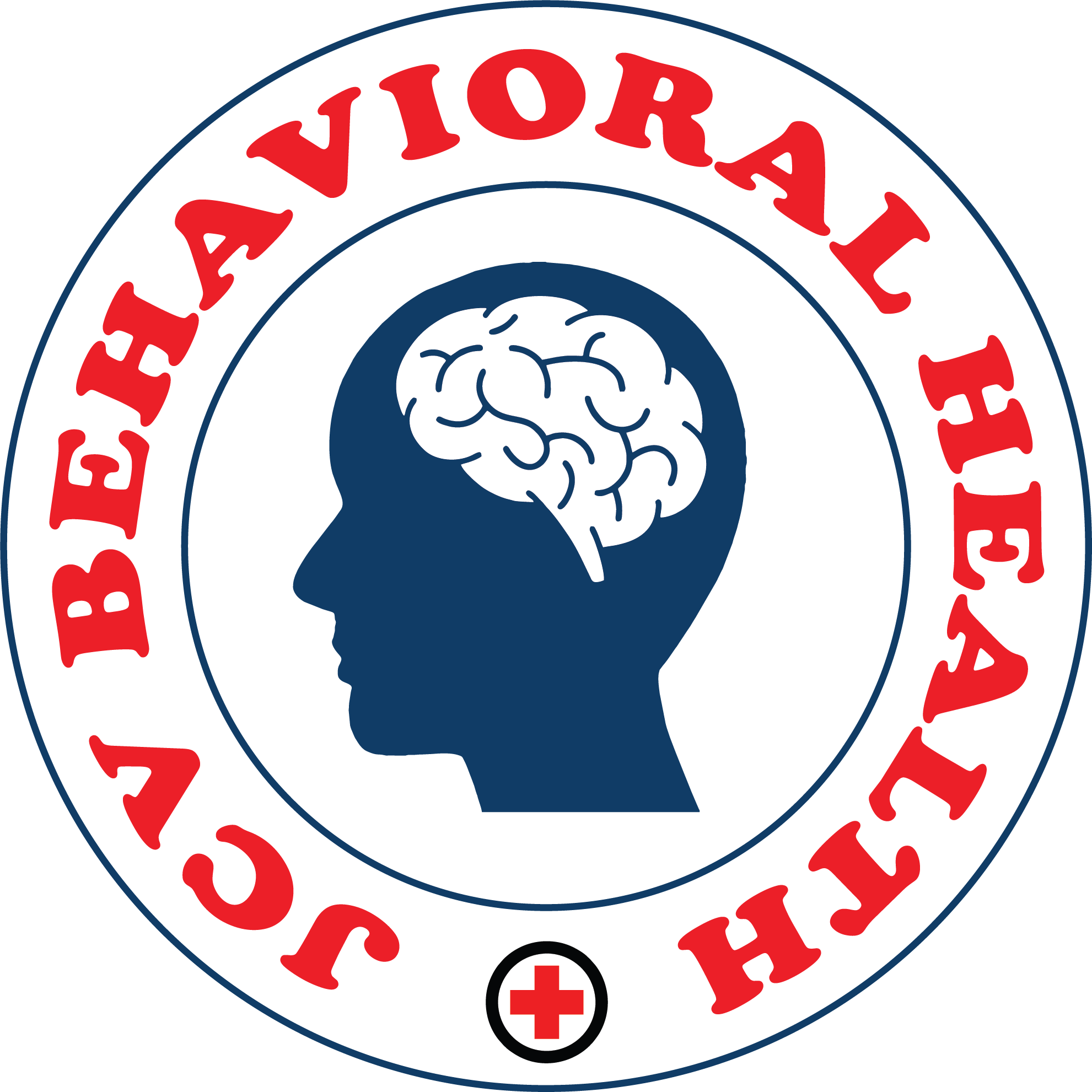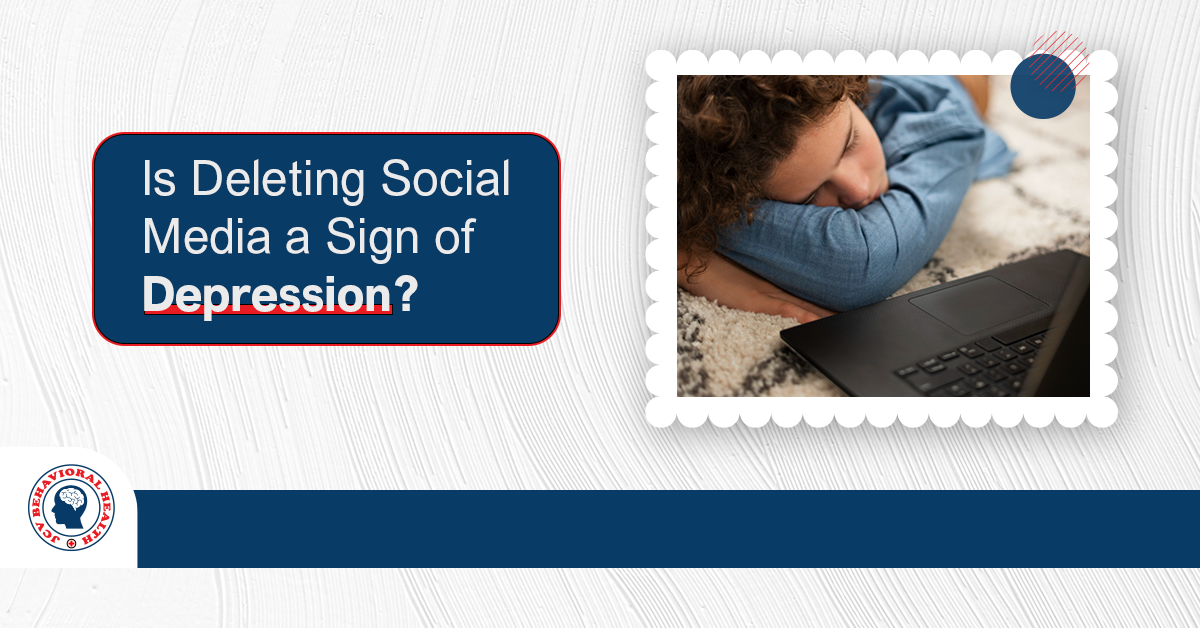At JCV Behavioral Health, we know this relationship is complex. We are here to guide you toward healing and wellness. We know that depression is a complex mood disorder. Social media is one of the many factors that contribute to it.
The Link Between Social Media and Depression
Depression shows itself in surprising ways. It causes sadness and hopelessness, stealing joy from favorite activities. Some might seek relief by deleting their online presence. Is deleting social media a sign of depression? Researchers find the answer in the complexity of depression.
Depression stems from genetics and daily experiences. Now, social media complicates this. It changes our approach to mental health in the digital era.
The curated highlight reels on these platforms can set unreal standards. They can cause feelings of inadequacy and a desire to compare. Also, constant exposure to idealized images can harm self-esteem. It can cause isolation if one sees one’s life as less glamorous.
Deleting Social Media: Reasons Beyond Depression
We have been discussing a link between deleting social media and depression. But people might be leaving for other reasons, too. Cutting social media use can boost productivity and time management. It can also improve mental health by reducing social comparison and boosting sleep.
Why I Deleted Social Media?
-
Comparison
The highlight reels on TikTok and Instagram can hurt people’s self-esteem. They may feel inadequate and insecure about their lives. Endless scrolling through others’ perfect lives can cause self-doubt and comparison.
Also, looking at others’ photos can hurt self-esteem and body image. Constant comparison is unhealthy. It can harm mental health and cause stress, anxiety, and depression.
-
Information Overload
Endless exposure to curated content causes emotional overload and fatigue. Social platforms often have negative content and images. They can trigger anxiety and depression.
This could be a reason to delete social media. It avoids overwhelming itself. No social media usage can sometimes be a conscious decision to de-stress and clear the mind.
-
Unproductivity
Too many alerts from social media can distract and hinder focus on work. When notifications keep appearing, it gets hard to stay focused. Excessive social media use can distract from more important priorities.
-
Less Time for Self-Reflection
Being constantly immersed in social media can limit introspection (or self-reflection). Online interactions consume almost all available time. There is no time left to reflect on one’s identity, thoughts, and actions.
These are essential for personal development. It can feel super depressing at times. A break from social media can help one to reconnect and unwind.
-
Cyberbullying
Social media platforms are often used for cyberbullying. People face harassment, humiliation, or exclusion online. Cyberbullying can take many forms.
These include mean messages, dissing, outing, doxing, cyberstalking, trolling, and roasting. This can leave the victims feeling terrified and desolated.
Cyberbullying is associated with many mental health issues, including anxiety and depression. Victims might avoid the internet or social media for fear of more harassment.
-
Privacy Issues
Social media is a good way to connect with loved ones. But, it requires sharing a lot of personal info. Social media collects a lot of data from users.
Social media users face privacy breaches. Hackers target accounts for personal data. Information online makes users vulnerable. Compromised profiles leak private details, causing worry.
Easy access to personal information disturbs many. Data breaches remain a constant threat, increasing concerns about digital security.
-
Sleep Problems
Excessive time on social media can cause sleep loss, leading to depression. The blue light from screens can disrupt your sleep. It can harm your mental health. Some people limit screen time and don’t use their phones before bed.
Others delete social media to avoid addiction and overuse. Some people delete social media for better wellness. Also, consider how online platforms affect mental health.
Tips for Healthy Social Media Use
Social media’s drawbacks exist, yet it offers mental health benefits when used wisely. We can use these platforms to boost our well-being and build connections.
- Set Limits: Establish clear limits for social media use. Restrict scrolling to set times or daily limits.
- Mindful of Your Content: Watch your emotional responses to online content. Unfollow or mute accounts that bring negativity. Aim for a positive and healthy feed. Be selective about your digital space.
- Curate Your Feed: Create a positive online space. Follow accounts that bring joy, expand your view, and feed your mind. Let inspiration, knowledge, and positivity fill your daily feed.
- Take Breaks: Disconnect from the internet. Nourish your body and soul. Explore nature, pursue passions, or meet family and friends. These activities enhance life beyond the digital world.
- Seek Support: Struggling with social media’s impact on your wellbeing? Consider seeing a therapist. They offer tools to tackle challenges and restore balance.
Wrapping Up
Is deleting social media a sign of depression?
Deleting social media doesn’t always indicate that someone is depressed. But it can show they feel overwhelmed or anxious or need a break from the constant stimuli. Social media can cause stress, comparison, and isolation.
However, taking a break may help restore balance and improve mental health. If social media harms your mental health, take breaks. Seek help. These steps can help your emotional wellness.
FAQs
-
Why I deleted social media?
People delete social media for better mental health, productivity, and privacy. They want to avoid information overload and comparison.
-
Benefits of deleting social media?
Without social media, users often focus more on work and hobbies. They have more time for personal growth.
-
How does social media affect physical health?
It can be. Too much use may cause eye strain, poor posture, and disrupted sleep. These harm physical health.







